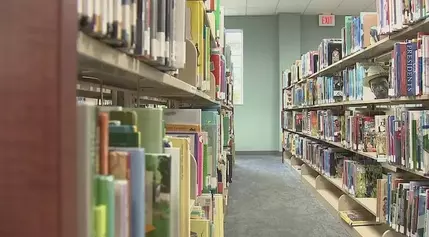News

The Charlotte Mecklenburg Library is spearheading a novel initiative aimed at addressing food insecurity by collaborating with local food pantries. This partnership brings much-needed resources directly to community members through monthly food distributions at various library branches, ensuring accessibility for all without the need for appointments or identification.
Empowering Communities Through Accessible Food Assistance
Pioneering Collaboration Between Libraries and Food Pantries
Libraries have long been pillars of knowledge and community support, but now they are expanding their role into vital social services. In an unprecedented move, the Charlotte Mecklenburg Library has teamed up with Hope Street Food Pantry to offer monthly food distribution events. This collaboration underscores the evolving nature of libraries as hubs for comprehensive community welfare. By hosting these events, the library not only provides essential sustenance but also fosters a sense of solidarity among residents.The integration of food assistance into library services represents a significant shift in how public institutions address societal challenges. It demonstrates that libraries are not just places for books and information but can serve as critical lifelines during times of need. The absence of stringent requirements like appointments or ID checks makes this program particularly inclusive, reaching individuals who might otherwise face barriers to accessing aid.Bridging the Gap: Libraries as Community Anchors
In today's rapidly changing world, the role of libraries has expanded beyond traditional boundaries. They are becoming multifaceted centers that cater to a wide array of community needs. By partnering with food pantries, libraries are effectively bridging the gap between resource providers and those in need. This innovative approach highlights the adaptability and resilience of public institutions in responding to contemporary issues.Monthly food distribution events held at different library branches ensure that assistance reaches every corner of the community. Each branch serves as a focal point where neighbors can come together, share resources, and build stronger connections. This model of service delivery not only alleviates immediate hunger but also strengthens the social fabric of the community. Libraries, once seen primarily as repositories of knowledge, are now proving to be indispensable anchors in the fight against food insecurity.Expanding Reach and Impact Through Flexible Services
The flexibility offered by this new program cannot be overstated. By rotating the event locations across multiple library branches, organizers ensure that no part of the community is left behind. This strategic approach maximizes reach and impact, allowing more people to benefit from the available resources. Moreover, the lack of rigid requirements such as appointments or IDs removes potential obstacles that could deter participation.This initiative exemplifies the power of community-driven solutions. When public institutions like libraries collaborate with grassroots organizations like food pantries, the result is a robust network of support that can respond effectively to local needs. The success of this program lies in its simplicity and inclusivity, making it a model for other communities looking to combat food insecurity in innovative ways.Future Prospects: Building on Success
As this partnership continues to thrive, there is immense potential for further expansion and innovation. Future iterations of the program could explore additional collaborations with other community organizations, healthcare providers, and educational institutions. By integrating a broader range of services, libraries can become even more comprehensive hubs for community well-being.The success of the Charlotte Mecklenburg Library's initiative offers valuable lessons for other regions facing similar challenges. It demonstrates that with creativity and collaboration, public institutions can play a pivotal role in addressing complex social issues. As the program evolves, it sets a powerful precedent for what libraries can achieve when they embrace their role as dynamic, adaptable community anchors.



















